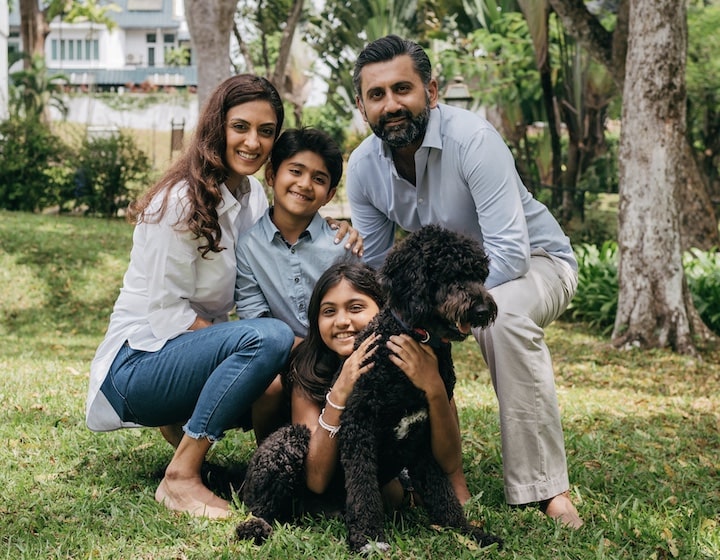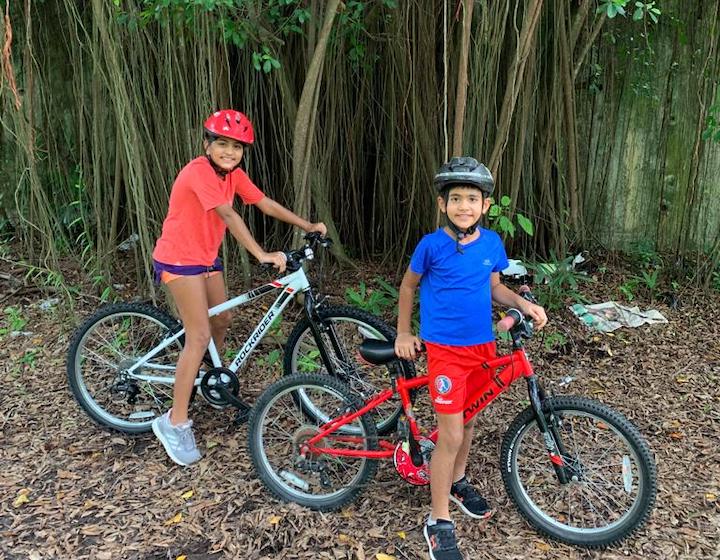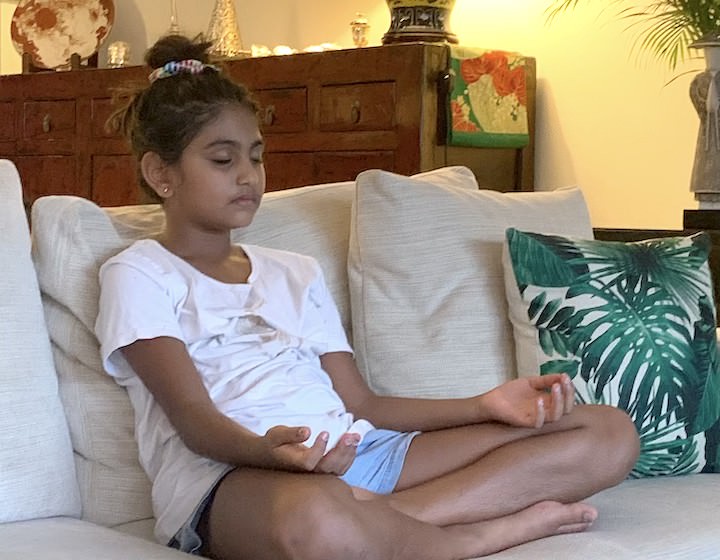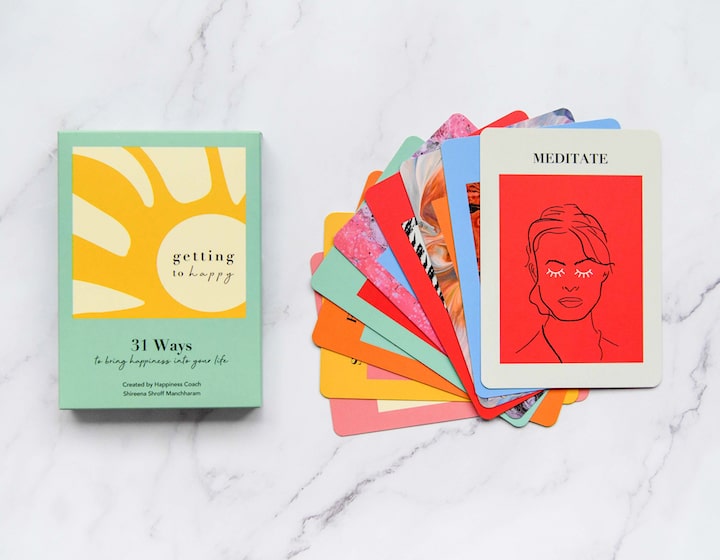
We have to admit, finding happiness can often seem tougher in these troubling times. This mama of two and Happiness Coach shares her top tips on how to be happy
Could we really be happier? Of course, and according to this mama it just takes a few mindful steps every day to get to happiness. Shireena Shroff Manchharam is a Life & Happiness Coach and mother to a soccer-loving 8-year-old boy, and a headstrong, loving girl who’s 11 going on 21 – so she sure knows a thing or two about kids’ happiness too! Keep reading as Shireena shares some expert advice on increasing happiness in your life and that of the family’s.
Happiness and the pursuit to increase well-being is a much sought-after topic now. I see teenagers struggling with their mental health, and at the same time, I see parents sacrificing their own, for the sake of their children. As parents we need to understand what our limitations are, what we are willing to sacrifice and what’s most important to teach our kids.
As someone who breathes and lives happy, my days are definitely not perfect, and I experience all the ups and downs that life throws at me. It comes down to the tools that I believe work to increase well-being. They take effort and time. Below is a compilation of my top five things you can do with your family to get through the days, build resilience and increase well-being.

1. Head Outdoors
Start the day by being outdoors – take a walk around your block, practice some yoga in a park, or map out the gardens you and your family want to discover and get through them this summer holiday! Being outdoors in fresh air increases the production of serotonin and endorphins, which are hormones that help regulate immunity, digestion, memory and sleep.
For kids it’s important for them to start their day with a clear mind and what better way than being outdoors. As a family we tackle the beautiful gardens around Singapore on the weekends and on a weekday morning it might be a simple walk around the block inhaling the clean air and appreciating blue skies.

2. Try Meditation
In line with going outdoors, for mental and physical well-being, another recommendation is meditation. I think previously it was looked at as something that required years of practice and also a zen-like personality. On the contrary, I would encourage you as a family to meditate for just a few minutes a day all together. If your children are young, explain that just a minute of silence helps the brain to relax and recharge, and can bring more focus and clarity to other activities in the day.
For older kids, you can download guided meditation apps like Calm, or Headspace which can help a newbie. As a family, before eating dinner we sit in our family room, dim the lights, and play mediation music. Everyone has their own spot to get comfy in, and sometimes our eyes open, or thoughts drift through our mind, and that’s perfectly okay. It’s understanding that committing to the practice as a daily habit leaves us less reactive, decreases stress and anxiety and has a positive effect on our mental well-being,
3. Practice Gratitude
I cannot stress enough that the practice of gratitude can have a profoundly positive impact on your subjective well-being. Practicing gratitude is like working on a muscle, it requires times and patience to make visible changes that will be long-lasting. It is a wonderful strategy to combat depression and anxiety and helps boost satisfaction and happiness.
Before putting your kids to sleep, encourage them to share three things from their day they are grateful for. Ask them to be specific and notice all the small and wonderful things. Making this a daily habit before bed will help with better sleep as it puts the mind in a positive place. If your kids are older, buy them a journal that they can jot the three things down in.
And even as parents, before you sleep, share your gratitude with your partner. It not only makes you feel good noticing the wonderful things around you, but also makes others around you, happier.
4. Remember to See The Light At The End of the Tunnel
As parents, it is easy to fall into a trap of believing that these hard times are never-ending and feeling traces of burnout from work, or other external stresses. As a parent, a helpful mantra that I tell myself is that; This Too Shall Pass. Every hurricane ends up as sunshine, and bad moments all do pass. It is moving our mindset from a negative place to a more positive one. In the same vein, I tell my children that their mantra to help them move on from difficult moments is that; Tomorrow is a new day. Every day is an opportunity to do things differently and better, just like the start of a week or month makes you feel motivated to do things right. It is okay to feel blue, but it’s all about how we stand back up again.

5. Give yourself me-time
As parents we need to be kind to ourselves, and also craft out moments in the day for some me-time – not to check into a spa for three hours, but taking intentional moments doing things that feel good for ourselves to help combat burnout and stress. When we look after ourselves, when we sleep well, and look after our mental and physical well-being we can then be the best versions of ourselves for our children. Children are going through a host of emotions that they sometimes do not even understand and when we are our best we can help them decipher those feelings and provide them with tools that will really help them to get through each day. It simply isn’t enough to survive, we want to all learn to thrive.

Striving to increase happiness is exactly why I created ‘Getting to Happy‘ last year in the middle of the pandemic, as a way to remind our society to be kinder to themselves and others. Getting to Happy cards come in a box set of 31 cards, each designed to be a daily reminder with an activity or tip with the science behind the card to explain how this will make you happier.
Thank you for sharing your happiness tips with us, Shireena! Try these for happier, kinder and more resilient days ahead, mamas!






 View All
View All




 View All
View All









 View All
View All







